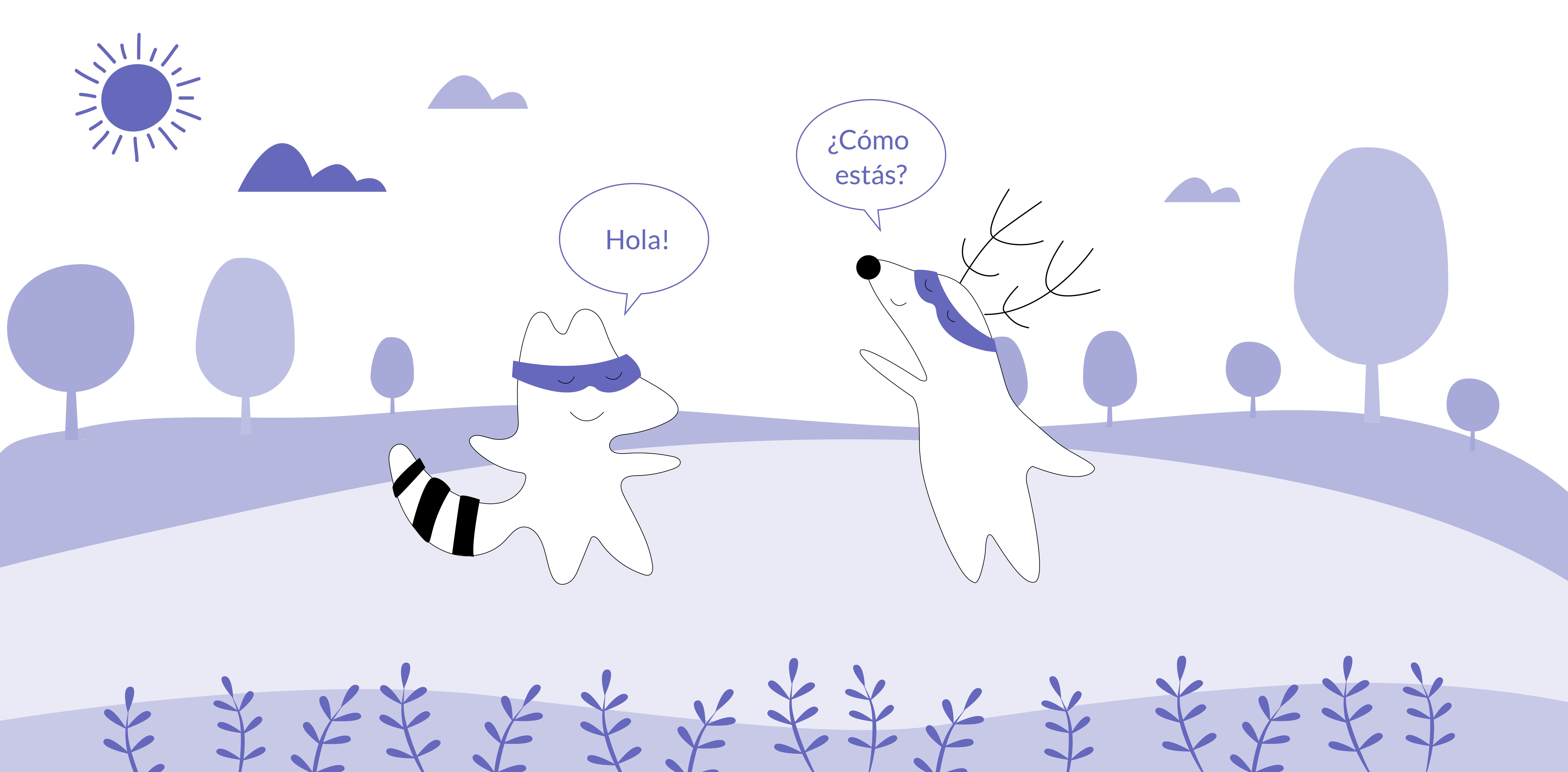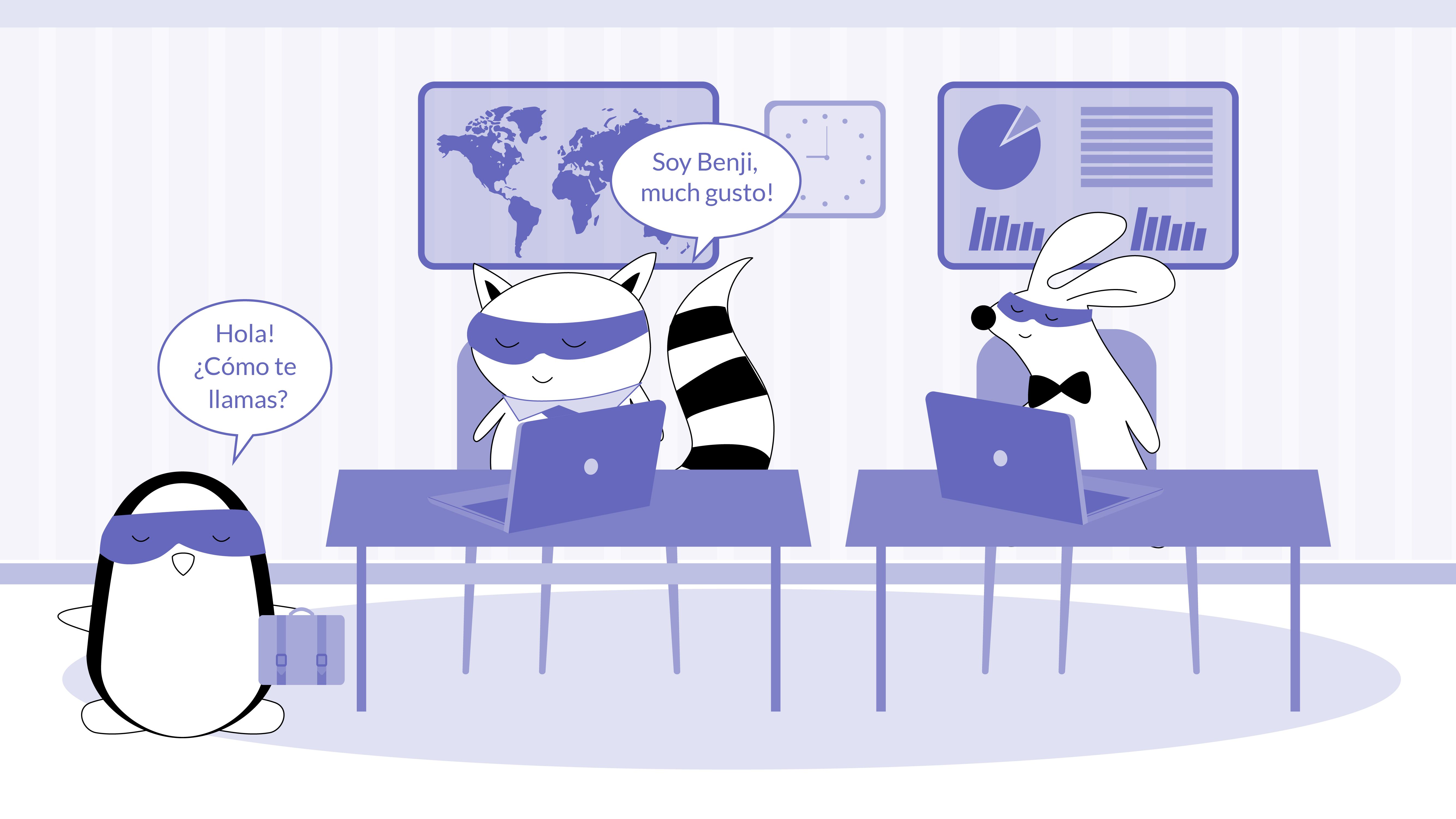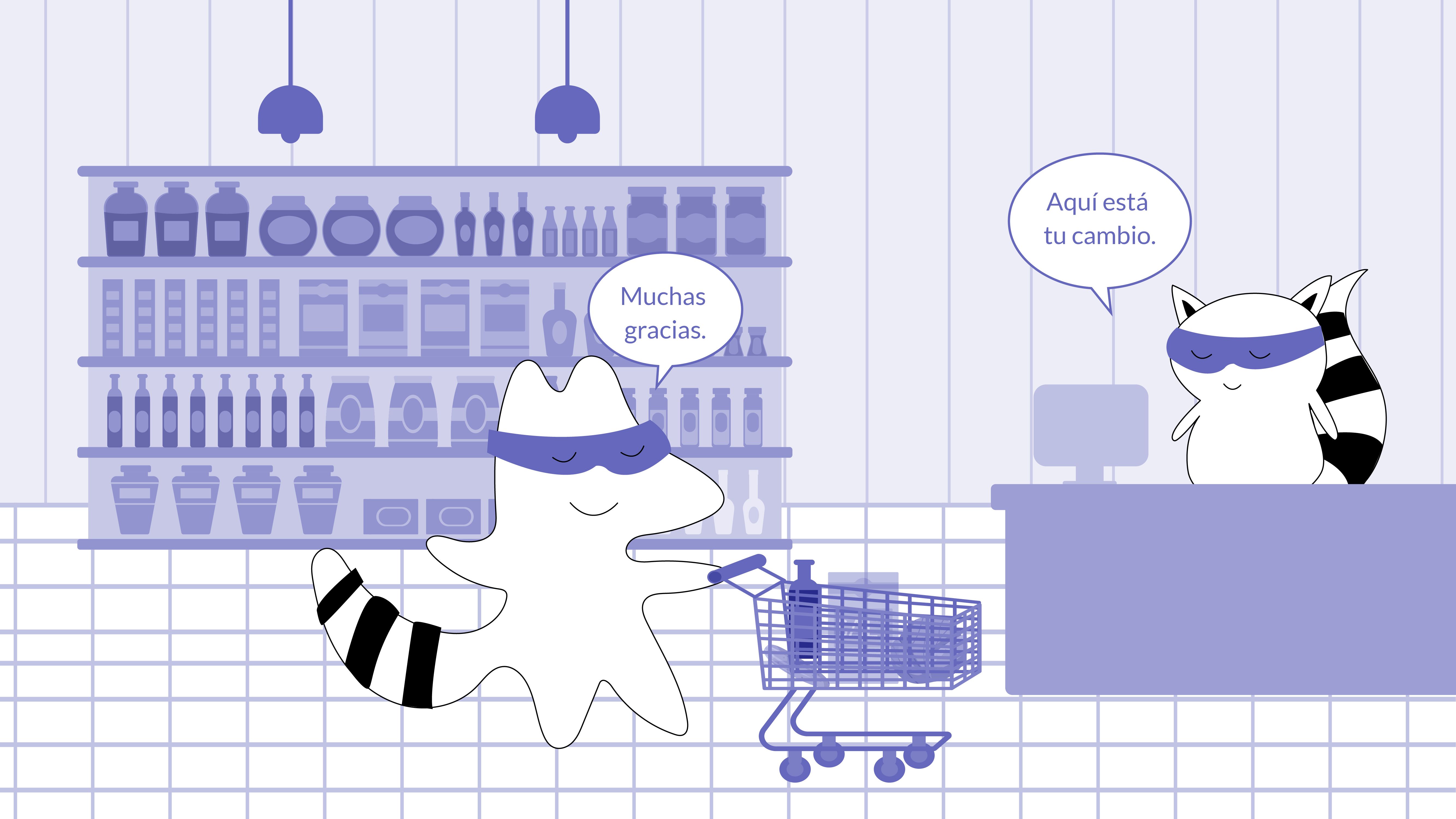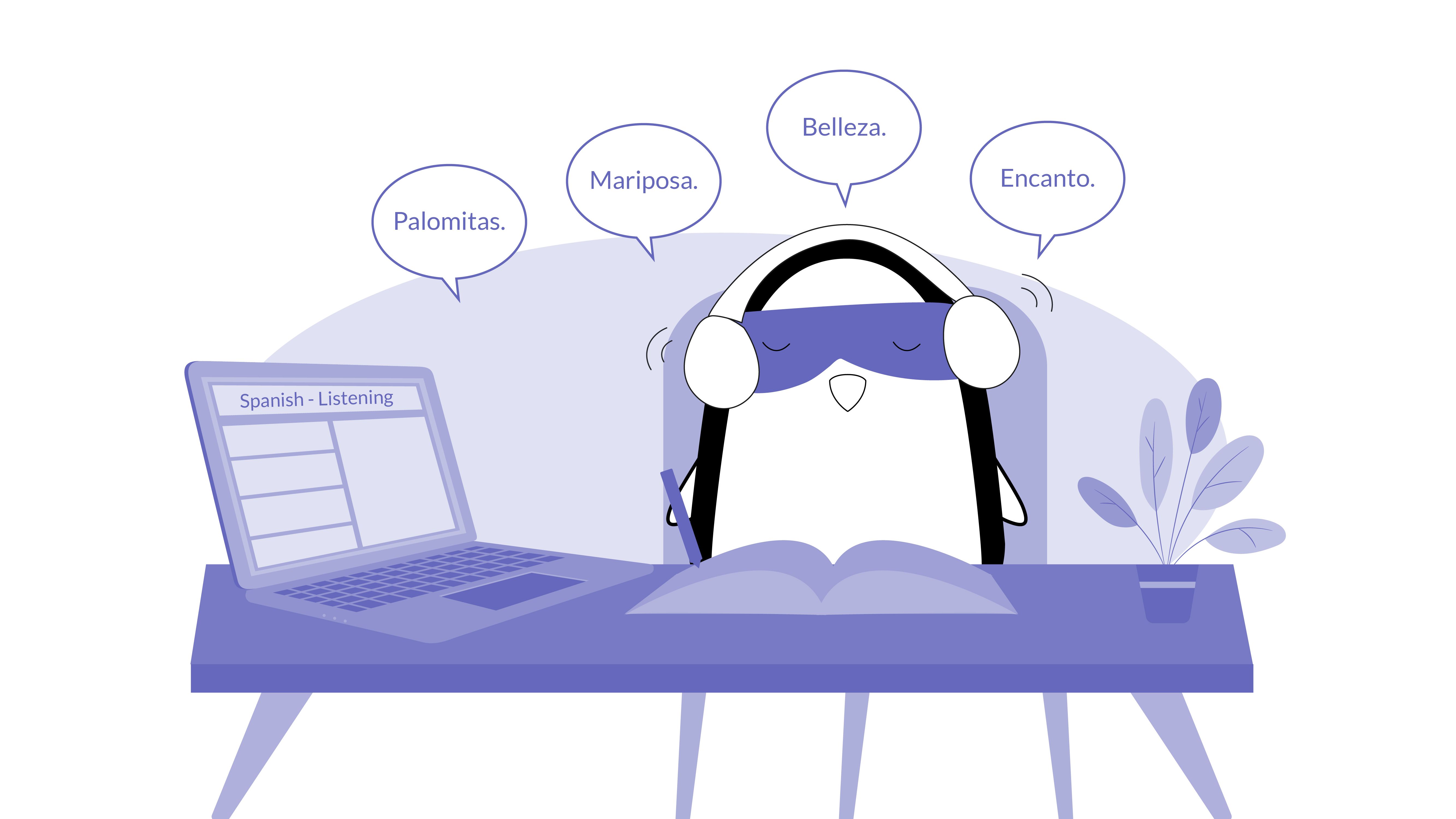
Are you ready to take the plunge and learn Spanish? With over 400 million native speakers, it is one of the most widely spoken languages in the world. While learning any language can be a daunting task, especially when starting from scratch, Spanish has many advantages that make it an ideal choice for beginners.
In this article, we’ll provide a beginner-friendly list of essential Spanish words and phrases as well as some tips on how to remember them better. We'll also look at some cultural aspects of the language that will help readers understand how these words are used in everyday conversations.
So, if you’re looking for an easy way to get started with your Spanish language journey, read on!
Learn Spanish with Langster
Basic Spanish Vocabulary: Greetings, Goodbyes, and Polite Phrases
The best way to get started in any language is by learning some of the most common words and phrases. Here are the most common Spanish words and phrases for beginners that will help you get your language-learning process started:
Spanish
English
Hola
Hello
This is the most basic word in any language and an important one to know. It’s the perfect way to greet someone and make a good impression.
Spanish
English
Por favor
Please
Asking nicely can go a long way in any language. Adding por favor to the end of your request is polite and shows respect.
Spanish
English
Muchas gracias
Thank you
Showing gratitude is an important part of any culture, and Spanish is no exception. You can use muchas gracias to thank someone for a favor or for a kind gesture.
Spanish
English
Lo siento
I’m sorry
Apologies are important, especially if you make a mistake or do something wrong. A sincere lo siento will go a long way to make amends with someone you may have offended.
Spanish
English
Adiós
Goodbye
A good way to end any conversation.
Spanish
English
Si
Yes
An affirmative answer.
Spanish
English
No
No
A negative response.
Spanish
English
Buenas tardes
Good evening
This phrase is used when greeting someone in the late afternoon or evening.
Spanish
English
¿Habla español?
(Do) You speak Spanish?
You can use this phrase when trying to initiate a conversation with someone or if you need help from a native Spanish speaker.
Spanish
English
¿Cómo estás?
How are you?
This is an informal way of saying hello or expressing concern for someone.
Spanish
English
Hasta luego
See you later
A friendly way of saying goodbye.
Spanish
English
De nada
You’re welcome
You can use this phrase when someone thanks you for something.
Spanish
English
Mucho gusto
Nice to meet you
This phrase is used to express joy or pleasure when meeting someone for the first time.
Of course, these are only a few basic Spanish phrases to help you get started. For more basic Spanish vocabulary words to use in a polite conversation, check out our separate article on conversational phrases, and learn how to get to know someone in Spanish.

Common Spanish Verbs
To speak Spanish fluently, it is important to learn some of the most common verbs in the language. Here are a few essential verbs that will be very useful for you:
Ser (to be)
This verb is used to talk about qualities or characteristics. For example:
Spanish
English
Soy estudiante
I am a student.
Tener (to have)
This verb is used to talk about possession. For example:
Spanish
English
Tengo un libro.
I have a book.
Hacer (to do/make)
This verb is used when talking about actions or tasks. For example:
Spanish
English
Hago mi tarea.
I do my homework.
Decir (to say/tell)
This verb is used to talk about what someone has said. For example:
Spanish
English
Dijo que sí.
He said yes.
Ir (to go)
This verb is used when talking about movement from one place to another. For example:
Spanish
English
Voy al cine.
I am going to the movies.
Ver (to see)
This verb is used to talk about visual perception. For example:
Spanish
English
Veo la televisión.
I am watching TV.
These are just some of the most common Spanish verbs, and they can be used in countless ways when forming sentences. With practice and repetition, you will soon be able to master the art of conjugation and speak Spanish fluently!
Basic Spanish Questions
When you're learning Spanish, it's important to learn how to ask questions to keep the conversation going. Here are some basic Spanish question words:
Spanish
English
¿Qué?
What?
Used when asking for more information or clarification about something. For instance, ¿Qué pasa? (What’s happening?) and ¿Qué tal? (What's up?) are typically used to ask someone how they are doing.
Spanish
English
¿Cuál?
Which/What?
You can use this word when asking for clarification about something.
Spanish
English
¿Quién?
Who?
Used when asking for the identity of someone or something.
Spanish
English
¿Por qué?
Why?
Used when asking for an explanation.
Spanish
English
¿Cómo?
How?
Used to ask for more information about the way something is done. For example, you can say ¿Cómo te va? (How's it going?) to start a conversation with someone and continue with ¿Cómo te llamas? (What's your name?) to get to know them better.
Spanish
English
¿Cuándo?
When?
Used to ask for a date or time.
Example
Explanation
¿Dónde?
Where?
Used to ask for the location of something or someone.
Learning how to use these basic words is an essential part of any beginner's journey to mastering the language. Check our separate article on using Spanish question words in conversations for more examples and context.

Basic Spanish Words for Going Grocery Shopping
If you are in a Spanish-speaking country, it’s important to know some of the basic words for food so you can go grocery shopping! Here are some common words and phrases that will come in handy:
Spanish
English
verduras
vegetables
frutas
fruits
carne
meat
pescado
fish
queso
cheese
leche
milk
pan
bread
azúcar
sugar
huevos
eggs
Now that you have a basic understanding of Spanish vocabulary for grocery shopping, it's time to practice using them in the conversation! Don’t be afraid to speak Spanish at the checkout – here are a few handy phrases for you:
Spanish
English
¿Cómo puedo ayudarle?
How can I help you?
¿Necesitas algo más?
Do you need anything else?
¿Está buscando algo en particular?
Are you looking for something specific?
Aquí está tu cambio.
Here is your change.
Gracias por venir.
Thank you for coming.
By practicing these essential Spanish words and phrases, you will be well on your way to becoming a fluent speaker of the language!

Tips for Memorizing Spanish Words & Phrases
Learning the essential Spanish words and phrases listed above is a great place to start, but it will take time and practice to get them all down perfectly. Here are some useful tricks for learning basic words and phrases in Spanish and remembering them better:
- Connect new words with existing knowledge. If a Spanish word is similar to an English word or phrase, use that to build a connection in your mind.
- Practice with native speakers. Nothing can replace the real-life experience of practicing Spanish with native speakers. Try finding someone who speaks Spanish and practicing your language skills together.
- Use mnemonic devices. Create mental associations or stories to help you remember new words and phrases better.
- Use flashcards. Write down Spanish words and their English translations on flashcards, and practice regularly with them.
- Listen to audio recordings. Listen to recordings of native speakers speaking Spanish, be it podcasts, audiobooks, or interviews, and try repeating after them.
- Read in Spanish. Try reading books and online articles, or download our Langster app to learn Spanish words with stories, and look up any words you don’t understand.
- Watch Spanish movies. Watching movies in Spanish is a fun and entertaining way to get familiar with the language.
With these tips and tricks, you’ll be well on your way to becoming an expert Spanish speaker! Don't forget to have fun with it, and practice as much as possible!
The Bottom Line

We hope this article has provided you with all the necessary tips and tricks for mastering basic Spanish words and phrases.
Remember that learning Spanish is an ongoing process. Don’t get discouraged if you don’t understand something right away – keep practicing, and you will eventually become proficient.
Also, try to immerse yourself in the culture and language as much as possible – the more exposure you have, the easier it will be to learn and remember new words and phrases. With dedication and hard work, you’ll soon find yourself speaking Spanish like a native! ¡Buena suerte!









